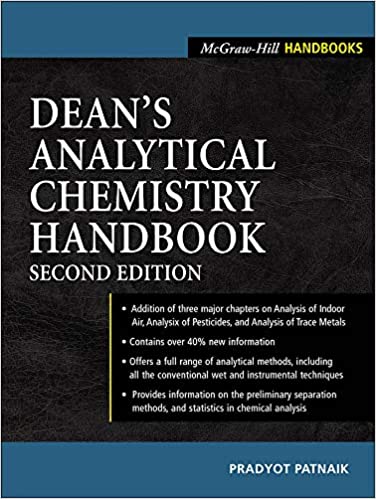Complexometric determination of nickel
general remarks
Nickel is titrated with EDTA against murexide. At the beginning of the titration solution should have low ammonia concentration, increased near the end point. This procedure enhances color change at the end point. Reaction between EDTA and Ni2+ ions is relatively slow, so titration should be carried out slightly slower than in other direct EDTA determinations.
EDTA reacts in the same conditions with Cu2+ and Co2+ as well. They should be removed or masked before the titration.
reaction
Reaction taking place during titration is
Ni2+ + EDTA4- → NiEDTA2-
sample size
For 0.01 M titrant and assuming 50 mL burette, aliquot taken for titration should contain about 0.35-0.45 millimoles of nickel (20-26 mg). If preparation of such sample is difficult, we can use different EDTA concentration.
end point detection
End point of nickel titration is easily detected with murexide. Murexide solutions are not stable and should be not stored longer than a week.
solutions used
To perform titration we will need titrant - 0.01 M EDTA solution, 10% ammonium chloride and concentrated ammonium solution. We will also need indicator - either in the form of solution, or ground with NaCl - 100 mg of indicator plus 20 g of analytical grade NaCl.
procedure
- Transfer nickel solution to Erlenmeyer flask.
- Dilute to about 100 mL with distilled water.
- Add 5 mL of 10% ammonium chloride and ammonia to obtain pH around 8.
- Add a pinch of murexide ground with sodium chloride (100 mg of indicator plus 20 g of analytical grade NaCl).
- Titrate slowly with EDTA solution.
- Just before the end of the titration add 10 mL of concentrated ammonia solution.
- Continue slow titration till the solution color changes from yellow to violet.
result calculation
Calculation of EDTA titration results is always easy, as EDTA reacts with all metal ions in 1:1 ratio:
Ni2+ + EDTA4- → NiEDTA2-
That means number of moles of nickel is exactly that of number of moles of EDTA used.
To calculate nickel solution concentration use EBAS - stoichiometry calculator. Download determination of nickel reaction file, open it with the free trial version of the stoichiometry calculator.
Click button above EDTA4+ in the input frame, enter volume and concentration of the titrant used. Click button. Read mass of nickel in the titrated sample in the output frame.
sources of errors
In general this is a simple titration, with no other problems then those listed as general sources of titration errors.





